Rheumatoid Arthritis
How to submit an article:
- Registered users can submit any published journal article that has a unique DOI (Digital Object Identifier) name or link to Research Hub.
- For example, you can paste the full DOI link:
https://doi.org/10.1109/5.771073or just the DOI name:10.1109/5.771073into the field above and click submit. - The person who is first to submit a valid article to Research Hub will forever be credited for it, and every article submission earns you +6 Research Points.
Related Topics
Published research studies are articles that present the findings of original research that has undergone a peer-review process and has been made publicly available in scholarly journals, books or other media.

Re-evaluation of dietary interventions in rheumatoid arthritis: can we improve patient conversations around food choices?
2024 Feb 20 Rheumatology International Sharma P, Brown S, Sokoya EM
Review Article Diet Rheumatoid ArthritisDespite diet being key in shaping gut microbiota, it surprisingly does not impact the treatment outcomes in individuals with Rheumatoid Arthritis.

Intermittent fasting: A promising dietary intervention for autoimmune diseases
2023 Oct Autoimmunity Reviews Barati M, Ghahremani A, Namdar Ahmadabad H
Systematic Review Intermittent Fasting Type 1 Diabetes Autoimmune Diseases Rheumatoid ArthritisIntermittent fasting may potentially influence autoimmune diseases like type 1 diabetes and rheumatoid arthritis, by reducing inflammation and supporting cellular repair mechanisms.

Nutrition and its role in prevention and management of rheumatoid arthritis
2023 Jul Autoimmunity Reviews Nikiphorou E, Philippou E
Review Article Mediterranean Diet Sardine Omega-3 Fatty AcidsNutrition, particularly an anti-inflammatory Mediterranean diet supplemented with oily fish and omega-3 supplements, can potentially reduce inflammation and improve symptoms of rheumatoid arthritis.
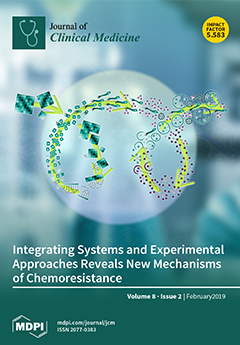
Intestinal Microbiota Reduction Followed by Fasting Discloses Microbial Triggering of Inflammation in Rheumatoid Arthritis
2023 Jun 28 Journal of Clinical Medicine Häupl T, Sörensen T, Smiljanovic B, Darcy M, Scheder-Bieschin J, Steckhan N, et al.
Clinical Study Inflammation Rheumatoid ArthritisRheumatoid arthritis-specific inflammation can be linked directly to the intestinal microbiota, thus, nutritional interventions against gut dysbiosis could function as a causal therapeutic approach.

To eat or not to eat—an exploratory randomized controlled trial on fasting and plant-based diet in rheumatoid arthritis (NutriFast-Study)
2022 Nov 02 Frontiers in Nutrition Hartmann AM, Dell'Oro M, Spoo M, Fischer JM, Steckhan N, Jeitler M, et al.
Randomised Controlled Trial Plant-Based Diet Cardiovascular Risk Rheumatoid ArthritisFasting followed by a plant-based diet and a standard diet both positively affected rheumatoid arthritis disease activity and cardiovascular risk factors, without discernible differences.
Research insights are moderated by the Research Hub team and offer an at-a-glance overview of interesting research findings.

2024 Rheumatology International
Despite diet being key in shaping gut microbiota, it surprisingly does not impact the treatment outcomes in individuals with Rheumatoid Arthritis.
Review Article Diet
Re-evaluation of dietary interventions in rheumatoid arthritis: can we improve patient conversations around food choices?
Sharma P, Brown S, Sokoya EM

2023 Autoimmunity Reviews
Intermittent fasting may potentially influence autoimmune diseases like type 1 diabetes and rheumatoid arthritis, by reducing inflammation and supporting cellular repair mechanisms.
Systematic Review Autoimmune Diseases Intermittent Fasting Type 1 Diabetes
Intermittent fasting: A promising dietary intervention for autoimmune diseases
Barati M, Ghahremani A, Namdar Ahmadabad H

2023 Autoimmunity Reviews
Nutrition, particularly an anti-inflammatory Mediterranean diet supplemented with oily fish and omega-3 supplements, can potentially reduce inflammation and improve symptoms of rheumatoid arthritis.
Review Article Mediterranean Diet Omega-3 Fatty Acids Sardine
Nutrition and its role in prevention and management of rheumatoid arthritis
Nikiphorou E, Philippou E

2023 Journal of Clinical Medicine
Rheumatoid arthritis-specific inflammation can be linked directly to the intestinal microbiota, thus, nutritional interventions against gut dysbiosis could function as a causal therapeutic approach.
Clinical Study Inflammation
Intestinal Microbiota Reduction Followed by Fasting Discloses Microbial Triggering of Inflammation in Rheumatoid Arthritis
Häupl T, Sörensen T, Smiljanovic B, Darcy M, Scheder-Bieschin J, Steckhan N, et al.

2022 Frontiers in Nutrition
Fasting followed by a plant-based diet and a standard diet both positively affected rheumatoid arthritis disease activity and cardiovascular risk factors, without discernible differences.
Randomised Controlled Trial Cardiovascular Risk Plant-Based Diet
To eat or not to eat—an exploratory randomized controlled trial on fasting and plant-based diet in rheumatoid arthritis (NutriFast-Study)
Hartmann AM, Dell'Oro M, Spoo M, Fischer JM, Steckhan N, Jeitler M, et al.
Review Articles
Review articles summarise and critically evaluate the current state of research on a specific topic or field by synthesising multiple primary research studies.

Re-evaluation of dietary interventions in rheumatoid arthritis: can we improve patient conversations around food choices?
2024 Feb 20 Rheumatology International Sharma P, Brown S, Sokoya EM
Review Article Diet Rheumatoid ArthritisDespite diet being key in shaping gut microbiota, it surprisingly does not impact the treatment outcomes in individuals with Rheumatoid Arthritis.

Intermittent fasting: A promising dietary intervention for autoimmune diseases
2023 Oct Autoimmunity Reviews Barati M, Ghahremani A, Namdar Ahmadabad H
Systematic Review Intermittent Fasting Type 1 Diabetes Autoimmune Diseases Rheumatoid ArthritisIntermittent fasting may potentially influence autoimmune diseases like type 1 diabetes and rheumatoid arthritis, by reducing inflammation and supporting cellular repair mechanisms.

Nutrition and its role in prevention and management of rheumatoid arthritis
2023 Jul Autoimmunity Reviews Nikiphorou E, Philippou E
Review Article Mediterranean Diet Sardine Omega-3 Fatty AcidsNutrition, particularly an anti-inflammatory Mediterranean diet supplemented with oily fish and omega-3 supplements, can potentially reduce inflammation and improve symptoms of rheumatoid arthritis.
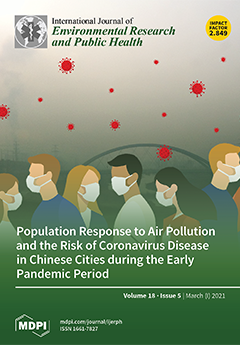
The Effectiveness of Intermittent Fasting, Time Restricted Feeding, Caloric Restriction, a Ketogenic Diet and the Mediterranean Diet as Part of the Treatment Plan to Improve Health and Chronic Musculoskeletal Pain: A Systematic Review
2022 May 30 International Journal of Environmental Research and Public Health Cuevas-Cervera M, Perez-Montilla J, Gonzalez-Muñoz A, Garcia-Rios M, Navarro-Ledesma S
Systematic Review Pain Caloric Restriction Mediterranean Diet Ketogenic Diet Intermittent Fasting Rheumatoid ArthritisDietary strategies, such as caloric restriction and ketogenic diets, can alleviate chronic pain and enhance quality of life.
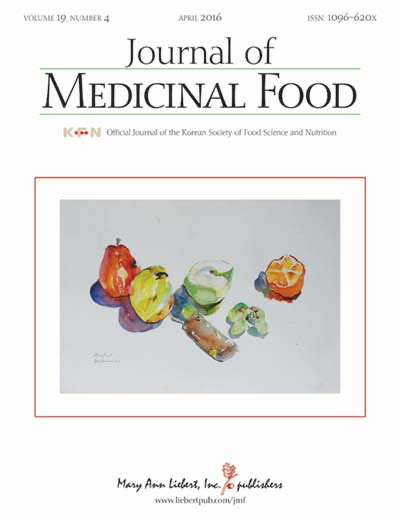
Omega-3 Fatty Acids and Balanced Gut Microbiota on Chronic Inflammatory Diseases: A Close Look at Ulcerative Colitis and Rheumatoid Arthritis Pathogenesis
2022 Apr 01 Journal of Medicinal Food Zorgetto-Pinheiro VA, Machate DJ, Figueiredo PS, Marcelino G, Hiane PA, Pott A, et al.
Review Article Gut Microbiota Rheumatoid ArthritisOmega-3 fatty acids can help prevent and manage chronic inflammatory diseases, including ulcerative colitis and rheumatoid arthritis, through influencing gut microbiota.
Clinical Trials
Clinical trials are research studies that involve people and are conducted to evaluate the safety and efficacy of new treatments or interventions, such as drugs, medical devices, or behavioural therapies.

To eat or not to eat—an exploratory randomized controlled trial on fasting and plant-based diet in rheumatoid arthritis (NutriFast-Study)
2022 Nov 02 Frontiers in Nutrition Hartmann AM, Dell'Oro M, Spoo M, Fischer JM, Steckhan N, Jeitler M, et al.
Randomised Controlled Trial Plant-Based Diet Cardiovascular Risk Rheumatoid ArthritisFasting followed by a plant-based diet and a standard diet both positively affected rheumatoid arthritis disease activity and cardiovascular risk factors, without discernible differences.
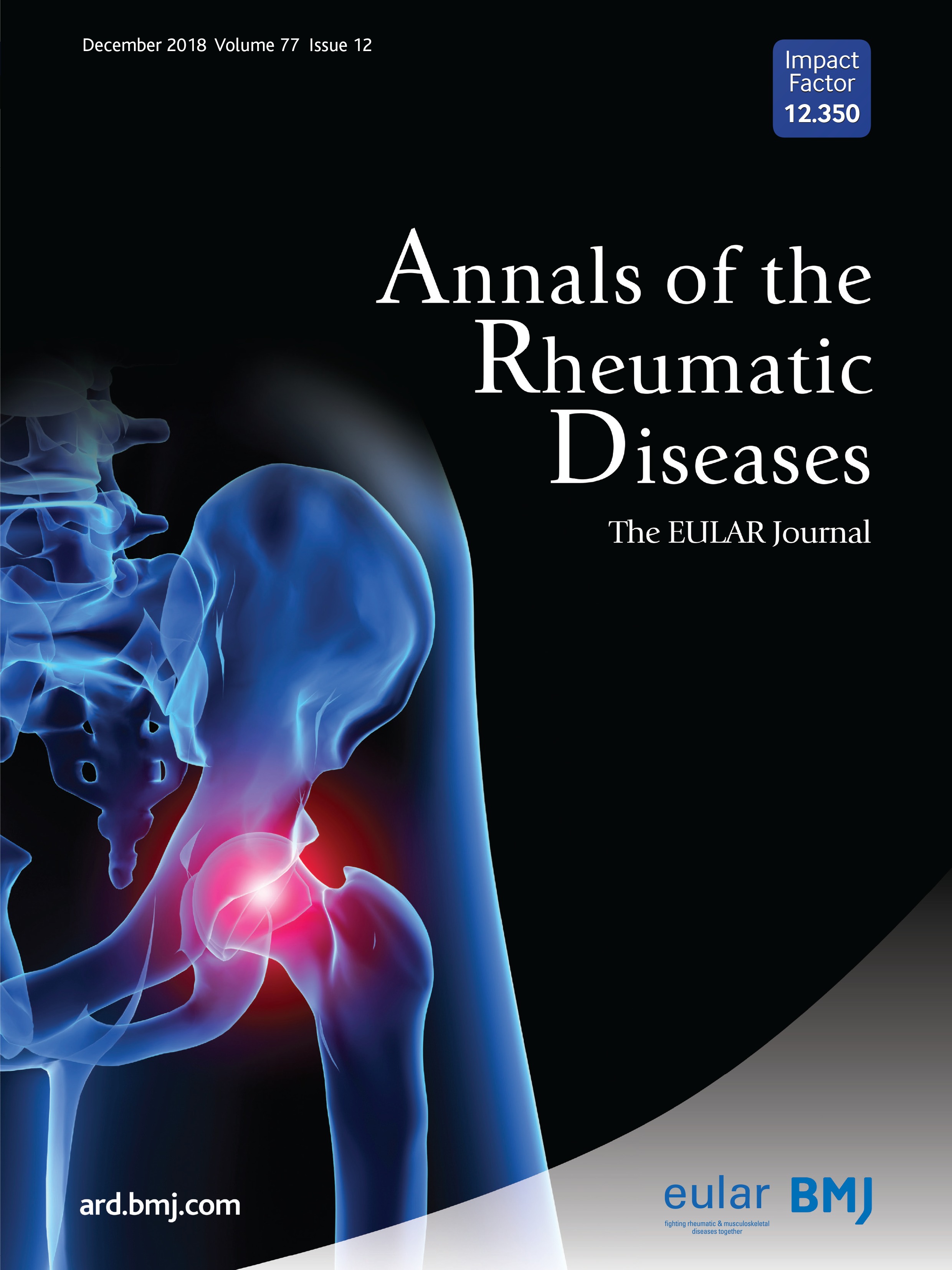
POS0583 RHEUMATOID ARTHRITIS BENEFITS FROM FASTING AND PLANT-BASED DIET: AN EXPLORATORY RANDOMIZED CONTROLLED TRIAL (NUTRIFAST)
2022 May 23 Annals of the Rheumatic Diseases Hartmann AM, Kandil FI, Steckhan N, Häupl T, Kessler CS, Michalsen A, et al.
Randomised Controlled Trial Plant-Based Diet Intermittent Fasting Rheumatoid ArthritisFasting followed by a plant-based diet positively impacts disease activity and cardiovascular risk factors in rheumatoid arthritis patients.
Study Protocols
Published study protocols are detailed plans that outline the objectives, methodology, statistical analyses, and organisation of a research study that have been made publicly available for others to review and use as a reference.
Presentation Slides

Review Article
Despite diet being key in shaping gut microbiota, it surprisingly does not impact the treatment outcomes in individuals with Rheumatoid Arthritis.
Sharma P, Brown S, Sokoya EM

Systematic Review
Intermittent fasting may potentially influence autoimmune diseases like type 1 diabetes and rheumatoid arthritis, by reducing inflammation and supporting cellular repair mechanisms.
Barati M, Ghahremani A, Namdar Ahmadabad H

Review Article
Nutrition, particularly an anti-inflammatory Mediterranean diet supplemented with oily fish and omega-3 supplements, can potentially reduce inflammation and improve symptoms of rheumatoid arthritis.
Nikiphorou E, Philippou E

Clinical Study
Rheumatoid arthritis-specific inflammation can be linked directly to the intestinal microbiota, thus, nutritional interventions against gut dysbiosis could function as a causal therapeutic approach.
Häupl T, Sörensen T, Smiljanovic B, Darcy M, Scheder-Bieschin J, Steckhan N, Hartmann AM, Koppold DA, Stuhlmüller B, Skriner K, Walewska BM, Hoppe B, Bonin M, Burmester GR, Schendel P, Feist E, Liere K, Meixner M, Kessler C, Grützkau A, Michalsen A

Randomised Controlled Trial
Fasting followed by a plant-based diet and a standard diet both positively affected rheumatoid arthritis disease activity and cardiovascular risk factors, without discernible differences.
Hartmann AM, Dell'Oro M, Spoo M, Fischer JM, Steckhan N, Jeitler M, Häupl T, Kandil FI, Michalsen A, Koppold-Liebscher DA, Kessler CS

Systematic Review
Dietary strategies, such as caloric restriction and ketogenic diets, can alleviate chronic pain and enhance quality of life.
Cuevas-Cervera M, Perez-Montilla J, Gonzalez-Muñoz A, Garcia-Rios M, Navarro-Ledesma S

Randomised Controlled Trial
Fasting followed by a plant-based diet positively impacts disease activity and cardiovascular risk factors in rheumatoid arthritis patients.
Hartmann AM, Kandil FI, Steckhan N, Häupl T, Kessler CS, Michalsen A, Koppold-Liebscher DA

Review Article
Omega-3 fatty acids can help prevent and manage chronic inflammatory diseases, including ulcerative colitis and rheumatoid arthritis, through influencing gut microbiota.
Zorgetto-Pinheiro VA, Machate DJ, Figueiredo PS, Marcelino G, Hiane PA, Pott A, Guimarães RCA, Bogo D
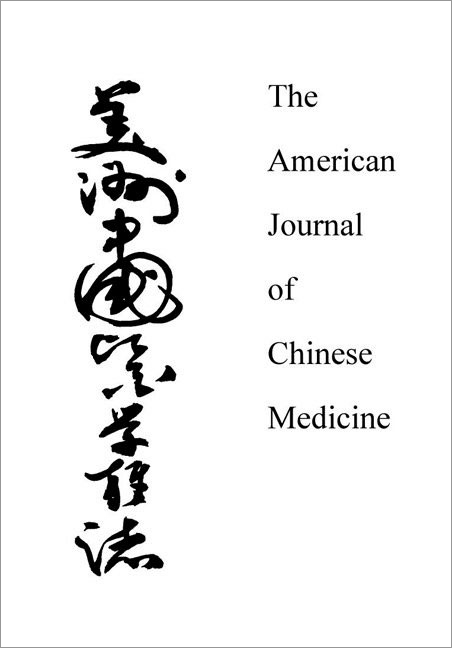
Review Article
Acupuncture shows promising results in managing autoimmune diseases by potentially regulating immune responses.
Jing Wang, Fangyi Zhu, Wei Huang, Zhengyi Chen, Ping Zhao, Yanting Lei, Yumei Liu, Xijun Liu, Bo Sun, Hulun Li

Cohort Study
Moderate consumption of fish, particularly oily fish, may decrease rheumatoid arthritis risk, potentially countering the increased risk induced by smoking.
Nguyen Y, Salliot C, Mariette X, Boutron-Ruault MC, Seror R

Systematic Review
Higher consumption of coffee and specifically decaffeinated coffee raises the risk of rheumatoid arthritis, while caffeinated coffee, tea and caffeine intake doesn't.
Asoudeh F, Dashti F, Jayedi A, Hemmati A, Fadel A, Mohammadi H

Cohort Study
Increased plasma omega-3 levels, which are associated with genetically higher intake of omega-3, contribute to a higher risk of rheumatoid arthritis among people of European ancestry.
Zhu G, Zhou S, Xu Y, Gao R, Li H, Zhai B, Liu X, He Y, Wang X, Han G, Su W, Wang R

Review Article
The ketogenic diet, by reducing carbohydrate intake, shows potential in weight loss, insulin requirement reduction, and mitigation of inflammatory symptoms in patients with inflammatory arthritis.
Ciaffi J, Mitselman D, Mancarella L, Brusi V, Lisi L, Ruscitti P, Cipriani P, Meliconi R, Giacomelli R, Borghi C, Ursini F
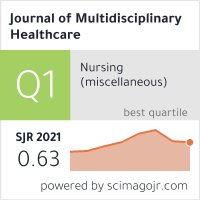
Cohort Study
Adding Chinese herbal medicines to routine treatment was found to be related to lower fracture risk in rheumatoid arthritis patients.
Liao HH, Livneh H, Chung YJ, Lin CH, Lai NS, Yen HR, Tsai TY

Meta-Analysis
Anti-inflammatory diets can lead to significantly lower levels of pain than regular diets for those with rheumatoid arthritis.
Schönenberger KA, Schüpfer AC, Gloy VL, Hasler P, Stanga Z, Kaegi-Braun N, Reber E

Cohort Study
Intermittent fasting during Ramadan can lead to rapid improvement of rheumatoid arthritis activity, with positive effects lasting up to three months.
Ben Nessib D, Maatallah K, Ferjani H, Triki W, Kaffel D, Hamdi W

Review Article
Yu Xing Cao, a traditional Asian medicine, demonstrates organ protection, immune regulation, and anti-tumour activity when analysed in modern research.
Wu Z, Deng X, Hu Q, Xiao X, Jiang J, Ma X, Wu M
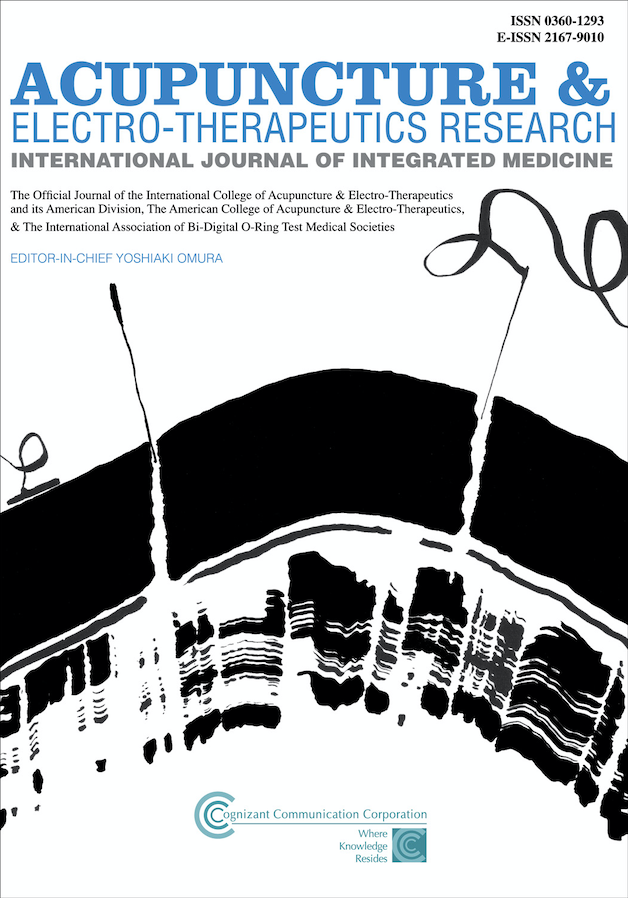
Systematic Review
Treatment of rheumatoid arthritis using acupuncture with Western medicine was associated with higher efficacy and lower risks than treatment with Western medicine alone.
Huo X, Liang L, Ding X, Bihazi A, Xu H
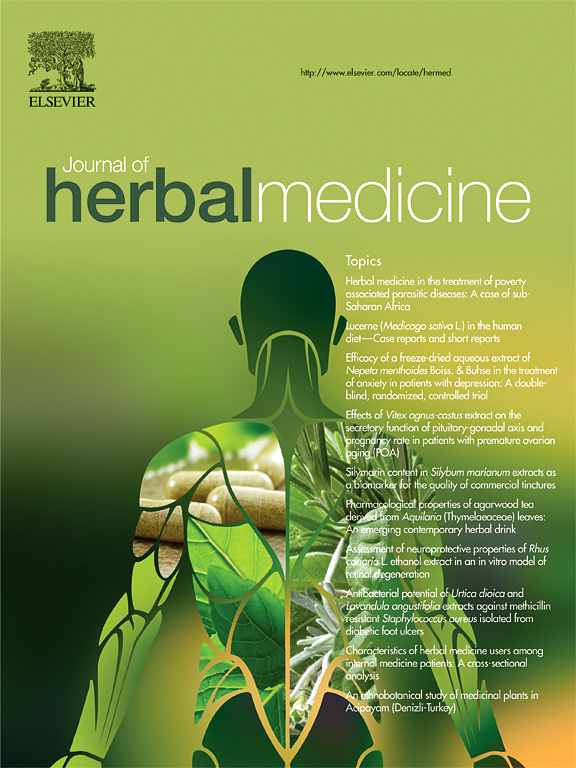
Clinical Study
Green tea therapy can significantly improve rheumatoid arthritis symptoms, correlating with changes in specific circulating serum molecules, miR-125b and miR-146a.
Al-Rawaf HA, Alghadir AH, Gabr SA

Adding acupuncture to conventional therapy may decrease the subsequent endometriosis risk in female rheumatoid arthritis patients.
Chen Wei-Jen, Livneh Hanoch, Hsu Chien-Hui, Hu Ying-To, Lai Ning-Sheng, Guo How-Ran, Tsai Tzung-Yi
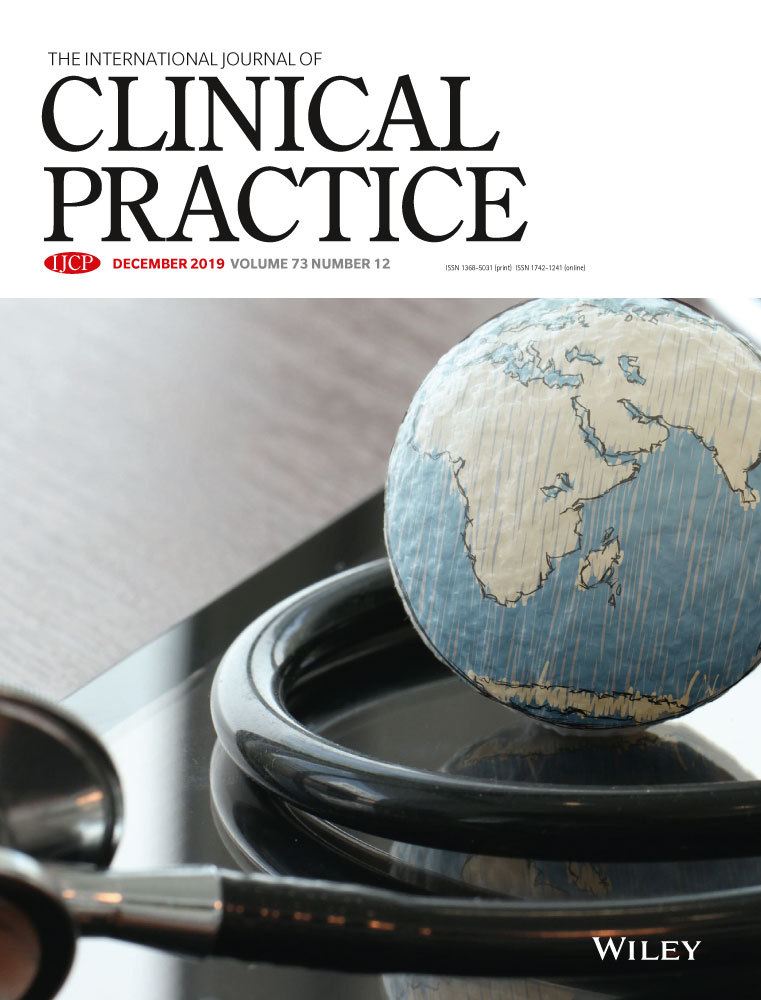
Systematic Review
Pomegranate consumption can effectively manage rheumatoid arthritis complications by reducing inflammation and oxidative stress without adverse effects.
Malek Mahdavi A, Seyedsadjadi N, Javadivala Z

Review Article
Beverages, through their diverse nutritional contents, have notable effects on rheumatoid arthritis progression by interacting with immune signaling pathways and altering the microbiome.
Dey M, Cutolo M, Nikiphorou E
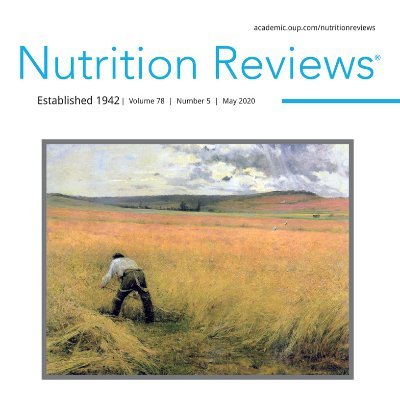
Systematic Review
High doses of omega-3 fatty acids, Vitamin D supplementation, and dietary sodium restriction showed significant improvement in reducing rheumatoid arthritis symptoms.
Philippou E, Petersson SD, Rodomar C, Nikiphorou E
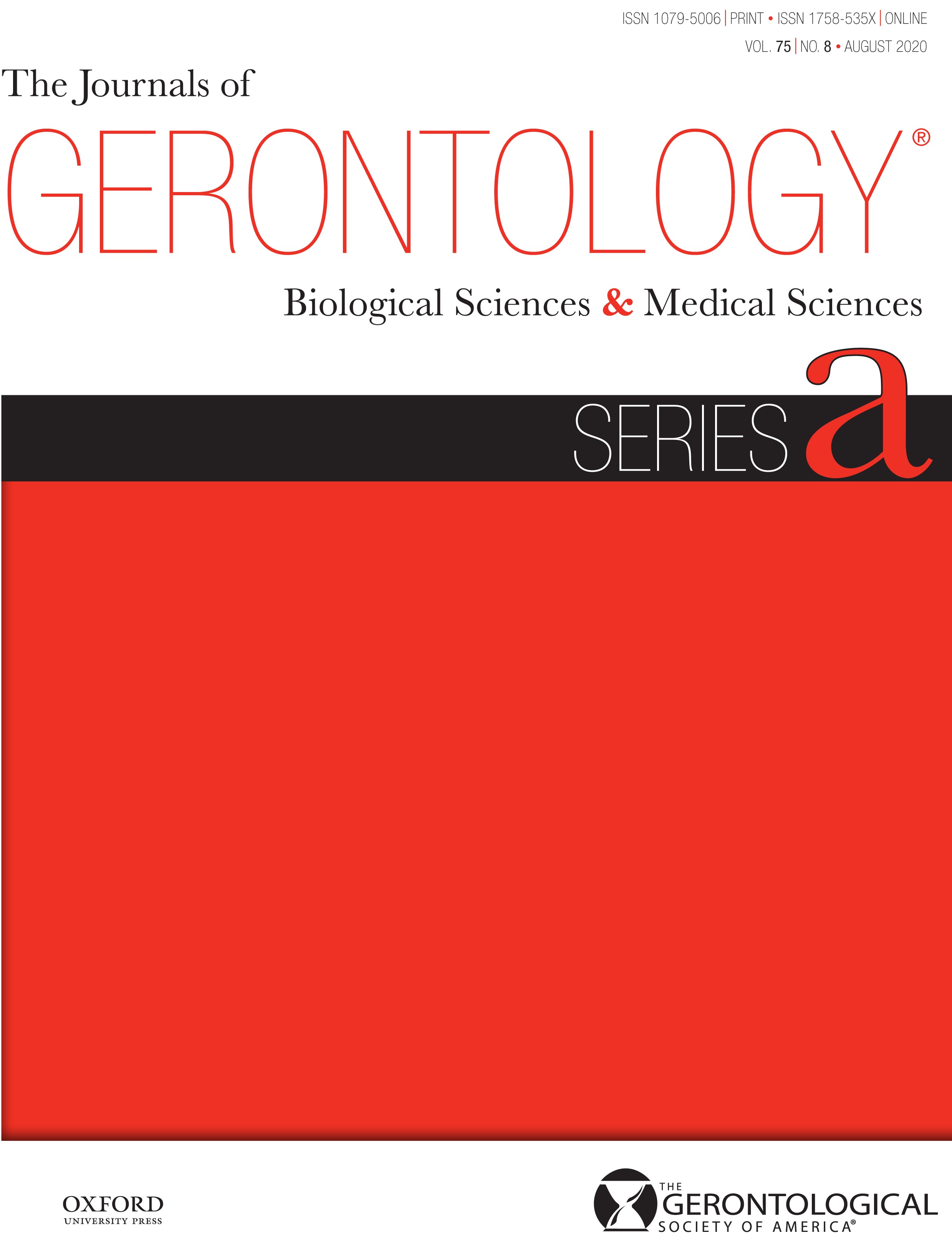
Cohort Study
Certain oxylipins, which are bioactive lipids derived from omega-6 and omega-3 polyunsaturated fatty acids, are potential key influencers in arthritis in older adults.
Coras R, Pedersen B, Narasimhan R, Brandy A, Mateo L, Prior-Español A, Kavanaugh A, Armando AM, Jain M, Quehenberger O, Martínez-Morillo M, Guma M

Cohort Study
Ramadan fasting can induce rapid improvement in rheumatoid arthritis and spondyloarthritis activity without significantly affecting medication compliance or tolerance.
Ben Nessib D, Maatallah K, Ferjani H, Kaffel D, Hamdi W

Review Article
Omega 3 fatty acids can counter muscle lipotoxicity and prevent comorbidities in patients with rheumatoid arthritis, supporting muscle health and reducing cardiometabolic disease risk.
Lanchais K, Capel F, Tournadre A

Review Article
Omega-3 fatty acids, essential for human health, can reduce inflammation and may mitigate symptoms in rheumatoid arthritis, particularly joint swelling and tenderness.
Kostoglou-Athanassiou I, Athanassiou L, Athanassiou P
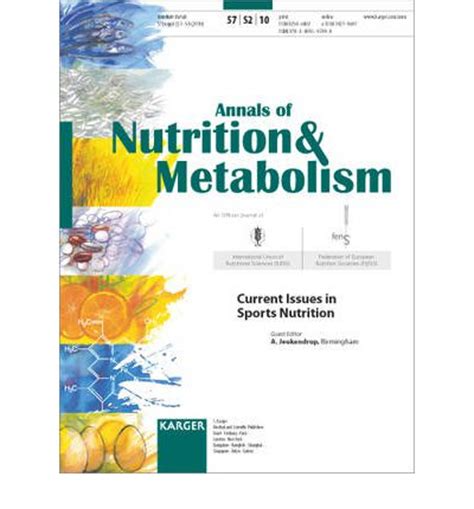
Cohort Study
High tea consumption is inversely associated with disease activity in rheumatoid arthritis, particularly beneficial in female patients, non-smokers, and elders.
Jin J, Li J, Gan Y, Liu J, Zhao X, Chen J, Zhang R, Zhong Y, Chen X, Wu L, Xiang X, Zhou Y, He J, Li R, Guo J, Li Z

Review Article
In 2017, dozens of Chinese proprietary medicines were employed as rheumatoid arthritis treatments and resulted in good outcomes, according to the National Health Insurance Directory of China.
Hu-DanPana, YaoXiao, Wan-YingWang, Ru-TongRen,Elaine Lai-Han,Leung, LiangLiua
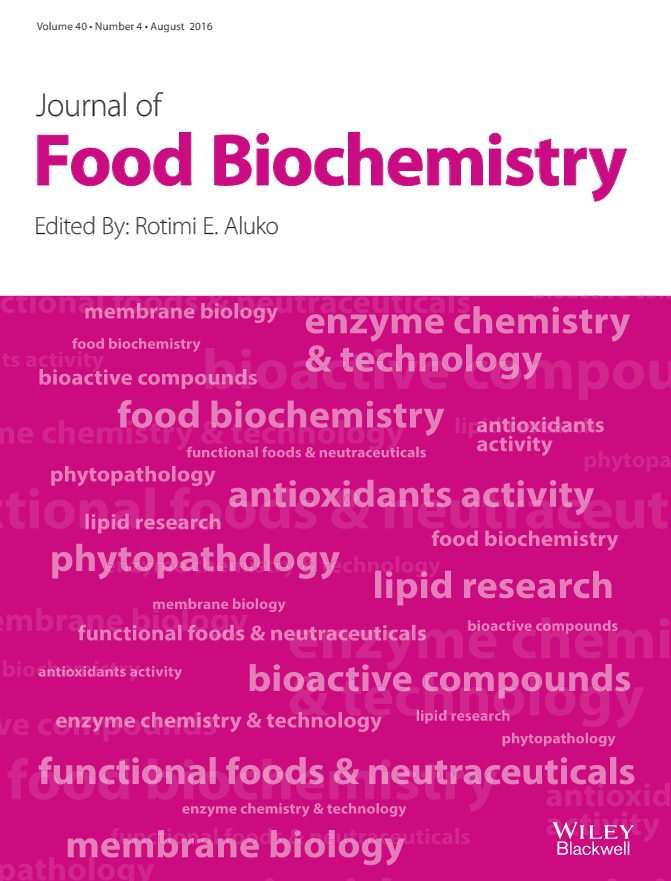
Animal Study
Pomegranate rind extract has been found to decrease pain and inflammation, suggesting it could contribute to treating rheumatoid arthritis.
Karwasra R, Singh S, Sharma D, Sharma S, Sharma N, Khanna K

Cohort Study
Fish intake does not majorly impact overall rheumatoid arthritis risk but can lessen the association of smoking for rheumatoid arthritis diagnosed under 55 years of age.
Sparks JA, O’Reilly J, Barbhaiya M, Tedeschi SK, Malspeis S, Lu B, Willett WC, Costenbader KH, Karlson EW

Systematic Review
Acupuncture alone or combined with other treatment modalities is beneficial to the clinical conditions of rheumatoid arthritis without adverse effects reported and can improve function and quality of life and is worth trying.
Pei-Chi Chou and Heng-Yi Chu
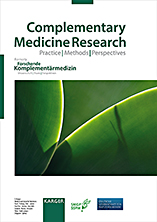
Systematic Review
Acupuncture therapy is more effective than NSAID in improving clinical efficacy rates and pain scores for treatment of chrondomalacia patellae.
Lv Z.-T.a · Li Z.-Q.b · Zhou X.c · Ma W.-W.d · Zhang J.-M.a · Chen A.-M
Executive Summary
Write an executive summary in the form of a blog article on the topic of "Research into Chinese medicine treatment for Rheumatoid Arthritis" summarising the research below and using language that can be easily understood by patients and avoiding medical jargon using a professional and caring tone of voice.
Write an executive summary in the form of a blog article on the topic of "Researched Chinese medicine treatments for Rheumatoid Arthritis" summarising the research below in an objective and easy to understand way, and using language that can be easily understood by patients. Group the article into Chinese medicine treatments first, followed by nutrition and other treatments. Avoid using medical jargon and use a professional and caring tone of voice.
Write me a concise but easy to understand executive summary on the topic of "Chinese medicine treatments for Rheumatoid Arthritis" based on the following research that I will give you. Your summary should be 2 paragraphs long in Australian English spelling and include references to the studies.
A Review Article published in 2024 in the journal Rheumatology International found that Despite diet being key in shaping gut microbiota, it surprisingly does not impact the treatment outcomes in individuals with Rheumatoid Arthritis. The process used to understand this paradox involved an umbrella review. This is an examination of multiple research studies and papers that address a similar question, in this case, the effects of diet on Rheumatoid Arthritis (RA). Through a comprehensive analysis of various scientific studies, researchers sought to determine if there was a meaningful link between diet and outcomes in RA patients. The results of this study revealed an unexpected conclusion. Despite the gut microbiota's critical role in shaping the risk of RA, the data showed that diet, which is a dominant factor in shaping our gut microbiota, did not appear to affect the treatment outcomes in individuals with RA. This finding is surprising given the generally accepted understanding of the influence of diet on gut health and correlates with disease states. This conclusion introduces a new perspective in the understanding of RA and its relationship with diet.
A Systematic Review published in 2023 in the journal Autoimmunity Reviews found that Intermittent fasting may potentially influence autoimmune diseases like type 1 diabetes and rheumatoid arthritis, by reducing inflammation and supporting cellular repair mechanisms. Extensive research was done through several electronic databases such as PubMed, Scopus, Embase, and Web of Science. Rigorous inclusion criteria were applied to filter the most relevant studies on the effects of intermittent fasting on autoimmune diseases. No reference to further research trials was mentioned in the methodology. The results indicate a potential link between intermittent fasting and the management of certain autoimmune diseases. Autoimmune diseases like type 1 diabetes, rheumatoid arthritis, and systemic lupus erythematosus exhibited improvements owing to the reduction in inflammatory markers, improvement in gut microbiota, and enhanced cellular repair resulting from autophagy induced by intermittent fasting. However, results concerning other autoimmune diseases like multiple sclerosis, systemic lupus erythematosus, thyroid diseases, and psoriasis were inconclusive.
A Review Article published in 2023 in the journal Autoimmunity Reviews found that Nutrition, particularly an anti-inflammatory Mediterranean diet supplemented with oily fish and omega-3 supplements, can potentially reduce inflammation and improve symptoms of rheumatoid arthritis. The review examines evidence indicating a possible connection between nutrition and the risk and management of rheumatoid arthritis, an autoimmune disease having an immune-inflammatory response. The impact of different food types was considered, including pro-inflammatory and anti-inflammatory foods. Specifically, the research highlights the effectiveness of a Mediterranean diet, rich in fish and supplemented with omega-3 polyunsaturated fatty acids, in reducing inflammation and oxidation. Other factors such as herbs and spices, beverages, vitamin D, and probiotics were also taken into account. The research emphasizes the direct and indirect role of nutrition through the management of co-morbidity. The disease activity was observed to improve with dietary changes, particularly a propensity to reduce inflammation, oxidation, and beneficial effects on gut microbiota. An anti-inflammatory Mediterranean diet, supplemented with consumption of oily fish at least twice a week, and daily intake of omega-3 polyunsaturated fatty acid supplements of 2 g, has been recommended. The study also highlights the importance of rheumatologists working closely with registered dietitians to support patients in managing a well-balanced diet according to their individual needs.
A Clinical Study published in 2023 in the journal Journal of Clinical Medicine found that Rheumatoid arthritis-specific inflammation can be linked directly to the intestinal microbiota, thus, nutritional interventions against gut dysbiosis could function as a causal therapeutic approach. The study initiated by reducing the intestinal microbiome in 20 Rheumatoid Arthritis patients through bowel cleansing and a week of fasting, limiting the intake to 250 kcal/day. It also employed immune monitoring and sequencing of the microbiome. A control group constituting patients with metabolic syndrome was incorporated to serve as a non-inflammatory baseline. To understand the fluctuation and impact on disease activity, disease activity scores were calculated and cytometric profiling was performed, tracing up to 46 different surface markers. Additionally, serum levels of certain cytokines and indicators of mucosal barrier disruption were monitored. The change in intestinal microbiota, i.e., the effect of fasting on arthritogenic bacteria and the shift in microbial composition, was analyzed using sequencing. The detection of more eukaryotic, predominantly fungal colonizers in RA patients was also observed to understand their potential involvement. Finally, the study investigated the observed increase in endogenous cortisol levels during fasting.
A Randomised Controlled Trial published in 2022 in the journal Frontiers in Nutrition found that Fasting followed by a plant-based diet and a standard diet both positively affected rheumatoid arthritis disease activity and cardiovascular risk factors, without discernible differences. In this research, 53 rheumatoid arthritis patients were divided into two equal groups. One group underwent a 7-day fast and thereafter followed an 11-week plant-based diet. The second group adhered to a 12-week standard diet based on the dietary recommendations of the German society for nutrition. The main metric of comparison between the two groups was the change from baseline to 12 weeks on the Health Assessment Questionnaire Disability Index. The research showed that the fasting group noted an early improvement by day 7 and remained stable over 12 weeks. Meanwhile, the standard diet group showed slower but positive enhancements at 6 and 12 weeks. Furthermore, both dietary methods contributed to an improvement in disease activity scores of all the patients by week 12. Also, an advancement in cardiovascular risk factors, notably weight loss, was more prominent in the fasting group than the standard diet group.
A Systematic Review published in 2022 in the journal International Journal of Environmental Research and Public Health found that Dietary strategies, such as caloric restriction and ketogenic diets, can alleviate chronic pain and enhance quality of life. This systematic review selected 16 articles from various databases including PubMed, Web of Sciences, ProQuest, and Scopus that were published within the last 6 years. These consisted of randomized clinical trials (RCTs), observational studies, and systematic reviews evaluating the effectiveness of different dietary strategies in the treatment of chronic pain. A range of assessment scales—PEDro, PVI, QUALSYT and the Quality Assessment Tool of Systematic Reviews scale— were utilized to gauge the risk of bias in these studies. The findings indicate an inconclusive consensus on the impact of an intermittent fasting (IF) diet on pain improvement. However, a caloric restriction diet emerged as a potential long-term treatment option for pain. Additionally, time-restricted food and ketogenic diets showed promising results in improving life quality in chronic conditions. Despite some studies indicating opposite results, the majority of the selected articles exhibited good methodological quality on their respective assessment scales.
A Randomised Controlled Trial published in 2022 in the journal Annals of the Rheumatic Diseases found that Fasting followed by a plant-based diet positively impacts disease activity and cardiovascular risk factors in rheumatoid arthritis patients. In the pilot study, patients with rheumatoid arthritis (RA) were split into two groups: one underwent a 7-day fast (consuming no more than 250 calories per day), followed by 11 weeks of a plant-based diet; the other was provided with conventional nutritional counseling according to the recommendations of the German Society for Nutrition for a total of 12 weeks. Disease activity and treatment responses were evaluated at the beginning of the experiment, day 7, week 6, and week 12. The results showed improvements in disease activity in both the fasting and conventional nutritional counseling groups. Noteworthy was the fact that the fasting group started showing improvements by day 7 as opposed to week 6 in the conventional group. Additionally, cardiovascular risk factors, such as weight and total cholesterol levels, showed more marked improvement in the fasting group compared to the conventional group. These improvements were found to be independent of any antibody status, intervention delivery method, or previous eating habits.
A Review Article published in 2022 in the journal Journal of Medicinal Food found that Omega-3 fatty acids can help prevent and manage chronic inflammatory diseases, including ulcerative colitis and rheumatoid arthritis, through influencing gut microbiota. The study primarily encompasses a review of both experimental and clinical studies on the influence of omega-3 fatty acids on chronic inflammatory conditions, with the attention being specifically focused on those diseases with an autoimmune background. The study highlights the role of these fatty acids in maintaining bodily homeostasis, as well as the enzymatic processes they trigger within the body upon ingestion. Natural sources of omega-3 are also explored, emphasizing the importance of maintaining a healthy and balanced diet. In their exploration of omega-3's impact on inflammatory conditions, the researchers revisit the pathogenesis of ulcerative colitis and rheumatoid arthritis under the theoretical approach of gut microbiota dysbiosis. This approach emphasizes the role of the gut in maintaining health and identifies how imbalances can contribute to the development and persistence of these conditions. The researchers propose that omega-3 fatty acids are able to prevent and control these conditions, which are significant contributors to global chronic health burden and can lead to severe complications and disabilities if not treated. The potential of omega-3's to prevent severe illness in cases of COVID-19 infection through immune system modulation and control of the inflammatory process is also briefly explored.
A Review Article published in 2022 in the journal The American Journal of Chinese Medicine found that Acupuncture shows promising results in managing autoimmune diseases by potentially regulating immune responses. The methodology of the study involved a comprehensive review of how acupuncture, a form of traditional Chinese medicine, may be employed as a treatment method for autoimmune diseases such as multiple sclerosis, rheumatoid arthritis, and inflammatory bowel disease. The research was based on existing knowledge and accumulating data, investigating the role of acupuncture in regulating immune responses during these conditions. The discussion of the results revealed that acupuncture showed promise in managing these diseases. It was noted that the positive outcomes observed might be linked to the potential of acupuncture to regulate abnormal immune responses which are characteristic of autoimmune diseases. Despite the fact that the precise mechanism through which this achieved is not fully understood, the findings indicate a promising alternative method of managing autoimmune conditions.
A Cohort Study published in 2022 in the journal Nutrients found that Moderate consumption of fish, particularly oily fish, may decrease rheumatoid arthritis risk, potentially countering the increased risk induced by smoking. The research was carried out within the E3N Study, a French prospective cohort study involving 98,995 women from 1990. Within this group, the diet of the subjects was assessed via validated food frequency questionnaires gathered in 1993. Utilising the colossal amount of data collected, a statistical method known as Cox proportional hazards models were implemented to identify potential relationships between incident rheumatoid arthritis, various types and amounts of fish consumption, and other potential risk factors such as smoking and age. Looking at the discussion of results, the study unearthed some fascinating links. Starting off, no linear association between general fish consumption and rheumatoid arthritis risk existed. Nevertheless, moderate consumption of fish was found to have a protective effect, reducing likelihood of developing rheumatoid arthritis. Digging deeper, this protection was especially pronounced in current or former smokers. Interestingly, this favorable association seemed to be stronger when it came to consumption of oily fish, thanks to its high omega-3 fatty acid content. Conversely, lean fish consumption did not display the same level of correlation. The proposed theory is the protective influence is likely due to the omega-3 fatty acid content prevalent in oily fish.
A Systematic Review published in 2022 in the journal Frontiers in Nutrition found that Higher consumption of coffee and specifically decaffeinated coffee raises the risk of rheumatoid arthritis, while caffeinated coffee, tea and caffeine intake doesn't. In the methodology, a dose-response meta-analysis of prospective cohort studies was carried out to evaluate the association between dietary caffeine, and different types of coffee and tea consumption with rheumatoid arthritis (RA). Relevant research papers were identified through a database search in PubMed/Medline, Scopus and EMBASE until July 2021. The studies considered different types of coffee, caffeinated or decaffeinated, tea or caffeine exposure with RA as the main or one of the outcomes. Out of 742 publications, five studies were selected for inclusion in the meta-analysis. Pooled relative risks were calculated through a fixed-effects model. Both linear and non-linear dose-response analyses were conducted to inspect dose-response relations. The analysis of results revealed a significant association between the consumption of coffee, especially decaffeinated coffee and increased risk of RA, when comparing between extreme categories of consumption. For each additional cup of coffee consumed daily, there was a notable increase in the risk of RA. However, this study found no significant link between the intake of caffeinated coffee, tea or caffeine intake and the risk of RA.
A Cohort Study published in 2022 in the journal Clinical Rheumatology found that Increased plasma omega-3 levels, which are associated with genetically higher intake of omega-3, contribute to a higher risk of rheumatoid arthritis among people of European ancestry. Methodology: The researchers have used an extensive set of data from the largest Genome-Wide Association Study (GWAS) which focuses on the correlation between omega-3 fatty acids and rheumatoid arthritis. They used information from a total of 114,999 individuals with European ancestry for the omega-3 study and 14,361 cases along with 43,923 controls of European ancestry for the rheumatoid arthritis study. By employing various methodological tests such as Mendelian randomization-egger_intercept, MR-PRESSO, and Cochran's Q test, they assessed the role of pleiotropy and heterogeneity in the relationship between omega-3 and rheumatoid arthritis. Discussion of Results: Results reveal no significant bias, pleiotropy, or heterogeneity among the omega-3 genetic instrumental variables in rheumatoid arthritis datasets. However, as the Mendelian randomization analysis indicated a causal link, the study provides the inference that with the genetic increase of omega-3 levels, the risk of rheumatoid arthritis also increases, particularly among individuals of European descent. Therefore, it suggests that the reduction in the intake of omega-3 could potentially reduce the risk of rheumatoid arthritis in this population.
A Review Article published in 2021 in the journal Frontiers in Medicine found that The ketogenic diet, by reducing carbohydrate intake, shows potential in weight loss, insulin requirement reduction, and mitigation of inflammatory symptoms in patients with inflammatory arthritis. The ketogenic diet operates on the principle of substantially limiting carbohydrate consumption with a daily calorie percentage between 5-10%, facilitating a metabolic switch towards the use of ketone bodies. Studies indicate promise in a variety of applications including weight loss, insulin requirement minimization in diabetes, cancer protocol supplementation, neurological treatment, and control optimization for metabolic and cardiovascular diseases. Although literature on the anti-inflammatory properties of the ketogenic diet on rheumatic diseases is somewhat limited, their beneficial effects on weight loss are evidenced by related biomechanical and biochemical factors. Obesity is recognized to stimulate macrophage activation and generate pro-inflammatory cytokines including TNF-α, IL-1b, and IL-6. Furthermore, scientists believe that the ketogenic diet’s primary clinical effect could be linked to the enhancement of insulin sensitivity. Insulin resistance demonstrates a correlation with increased TNF-α, IL-1α, IL-1β, IL-6, and leptin. Additionally, reduction in body adipose tissue and weight loss contribute to the anti-inflammatory effects and their impact on cardiovascular health. Within the context of rheumatoid arthritis, fasting has been shown to reduce disease symptoms, potentially through the production of a key ketone body, β-hydroxybutyrate, which may also stifle IL-17. This, combined with intermittent fasting, was shown to provide symptomatic improvements in psoriatic arthritis. However, the current literature does not allow for definitive conclusions regarding the effects of a ketogenic diet on ankylosing spondylitis.
A Cohort Study published in 2021 in the journal Journal of Multidisciplinary Healthcare found that Adding Chinese herbal medicines to routine treatment was found to be related to lower fracture risk in rheumatoid arthritis patients. This is the largest population-based cohort study based on Taiwan's national health database designed to determine the association between the use of CHMs and the risk of incident fracture in RA patients. Longer duration of incorporating CHMs into routine treatment for RA patients was found to significantly reduce the risk of fracture by 53%. Results of this study may serve as a reference to help healthcare providers when planning and implementing therapeutic interventions that seek to improve the overall health of patients with RA. Further prospective randomized trials are recommended to clarify whether the association revealed in this study supports a causal link.
A Meta-Analysis published in 2021 in the journal Nutrients found that Anti-inflammatory diets can lead to significantly lower levels of pain than regular diets for those with rheumatoid arthritis. During the study, the researchers investigated the impact of potentially anti-inflammatory diets (including Mediterranean, vegetarian, vegan, and ketogenic) on pain caused by rheumatoid arthritis. They used variables such as pain on a visual analogue scale, levels of C-reactive protein, erythrocyte sedimentation rate, health assessment questionnaire, disease activity score, tender/swollen joint counts, and measurements of weight, and body mass index. For their sources, the team scoured databases like MEDLINE, Embase, and CINAHL and ended up with 564 unique publications, out of which 12 were used in the systematic review and 7 in the meta-analysis. The results were obtained using a meta-analysis of eligible randomized controlled trials in RevMan 5. To compute the results, the mean differences or standardized mean differences were employed, and the inverse variance method of pooling was used with a random-effects model. In terms of bias risk assessment, all the studies used were identified as having a high risk of bias. Despite this, the results showed a consistent pattern that the anti-inflammatory diets resulted in significantly lower pain than regular diets for individuals suffering from rheumatoid arthritis.
A Cohort Study published in 2021 in the journal Clinical Rheumatology found that Intermittent fasting during Ramadan can lead to rapid improvement of rheumatoid arthritis activity, with positive effects lasting up to three months. In this prospective study, 35 patients with rheumatoid arthritis participated in fasting during Ramadan 2019. Their disease activity was assessed at three different time points: six months prior to the beginning of Ramadan, during the month between the seventh day of fasting and seventh day post Ramadan, and approximately 3.4 months after fasting. The disease activity score 28 was used to evaluate the activity of the disease. A significant decrease in all disease activity parameters was observed from the time six months prior to Ramadan to the time during fasting, followed by a gradual increase of clinical and biological outcomes between the end of fasting and the months following. However, the decrease of specific disease indicators that resulted from the Ramadan fast was maintained until the time point 3.4 months after fasting, despite the increasing trend. Thus, the overall improvements from fasting were found to be sustained for at least 3 months after the end of the Ramadan fasting period.
A Review Article published in 2021 in the journal Frontiers in Pharmacology found that Yu Xing Cao, a traditional Asian medicine, demonstrates organ protection, immune regulation, and anti-tumour activity when analysed in modern research. The methodology used in this review began by harnessing key search terms such as 'H. cordata and lung', 'H. cordata and heart', 'H. cordata and liver', and 'H. cordata and inflammation' to query research databases including PubMed, Web of Science and ScienceDirect. The focus was on articles published within the past decade that aligned significantly with the chosen keywords. Contents, disease models and research methods from these articles were analysed to form a comprehensive understanding of H. cordata's therapeutic effects. Results from the review found that H. cordata contained a variety of chemical constituents common to medicinal plants, including flavonoids and volatile oils, identified as the main active components. The plant demonstrated a range of pharmacological activities including organ protection, where it reduced the release of inflammatory factors to alleviate lung injury. The immunity regulation aspect enhanced immune barriers in the vagina, oral cavity, and intestinal tract, reducing pathogen infection due to its combined antibacterial and antiviral activity. It was also observed to have anti-inflammatory and anti-tumour properties, with a noted effect on lung, liver, colon, and breast tumours.
A Systematic Review published in 2021 in the journal Acupuncture & Electro-Therapeutics Research found that Treatment of rheumatoid arthritis using acupuncture with Western medicine was associated with higher efficacy and lower risks than treatment with Western medicine alone. In total, 9 RCTs involving 698 patients were included for analysis. VAS, ESR, CRP, and RF were all shown to favor the combination of acupuncture with Western medicine compared to Western medicine alone. ST36 (Zusanli), EX-UE9 (Baxie), Ll11 (Quchi), GB34 (Yanglingquan), TE14 (Jianliao) and TE4 (Yangchi) were frequently used in 9 clinical trials.
A Clinical Study published in 2021 in the journal Journal of Herbal Medicine found that Green tea therapy can significantly improve rheumatoid arthritis symptoms, correlating with changes in specific circulating serum molecules, miR-125b and miR-146a. In this study, 100 female patients suffering from rheumatoid arthritis and 50 healthy female subjects were examined. Patients with rheumatoid arthritis underwent green tea therapy, where they consumed 5 cups of green tea daily, delivering a total of 1230 mg of catechins, over a span of 24 weeks. During this time, researchers used real-time PCR analysis to measure the levels of miR-146a and miR-125 b in the patients' peripheral blood mononuclear cells. These cells were isolated from the subjects at three distinct stages: the starting point (baseline), after 12 weeks, and finally after 24 weeks of the treatment. The observations revealed a notable increase in the level of circulating miR-125 b and decrease in miR-146 expression, and these shifts were seen to correspond positively with measures of disease activity and pain intensity in the patients after 24 weeks of the green tea therapy. Also of note was that the levels of miR-146a and miR-125b could accurately predict the clinical response to green tea therapy in 65% of the rheumatoid arthritis patients. Discrepancies in miR-146a and miR-125b levels following green tea therapy suggests that they may be attributed to the joint protective, antioxidant, and anti-inflammatory effects of green tea. It was therefore proposed that both miR-146a and miR-125b could potentially serve as diagnostic, therapeutic, and predictive biomarkers in green tea therapy and may even have valuable application in related non-drug rheumatoid arthritis therapy.
A published in 2021 in the journal Frontiers in Medicine found that Adding acupuncture to conventional therapy may decrease the subsequent endometriosis risk in female rheumatoid arthritis patients. Between 1998 and 2010, female subjects with RA were recruited from a nationwide database (5,736 patients; age ≥20 years). Enrolled patients included 2,407 acupuncture users and 2,407 nonusers randomly selected using propensity scores. The occurrence of endometriosis was recorded through the end of 2012. Cox proportional hazards regression was used to estimate the adjusted hazard ratio (HR) associated with acupuncture use. Results: During the follow-up period, 35 acupuncture users and 94 non-users developed endometriosis, with incidence rates of 2.36 and 4.91 per 1,000 person-years, respectively. Acupuncture use was associated with a 55% lower endometriosis risk. Those who received high intensity acupuncture (≥15 packages) had the greatest benefit. The results of multivariable analysis demonstrated that the use of acupuncture was related to a significantly reduced risk of endometriosis. In the subgroup analysis, the medium- to high-level intensity acupuncture use was found to possibly lessen the risk of having endometriosis for more than 70%. We discovered that the post-rheumatoid arthritis acupuncture use would significantly reduce the risk of endometriosis in a dose-dependent manner.
A Systematic Review published in 2021 in the journal International Journal of Clinical Practice found that Pomegranate consumption can effectively manage rheumatoid arthritis complications by reducing inflammation and oxidative stress without adverse effects. The methodology involved in this review systematically examined available evidence related to pomegranate's impact on rheumatoid arthritis (RA). This study involved an extensive search of electronic databases such as PubMed, WOS, Cochrane Library, Scopus, Embase, and Google Scholar until March 2020, alongside search alert services for recent publications. Included were relevant clinical, animal, and in vitro studies, while review papers, conference abstracts, book chapters, or articles considering the effects of pomegranate in combination with other plants or its effects on other illnesses were excluded. The results pointed towards the beneficial effects of pomegranate. It was observed across human, animal, and in vitro studies that pomegranate significantly impacted clinical symptoms, inflammatory and oxidative factors in RA patients. Further, it was found that pomegranate helped manage RA complications by mitigating the inflammation and oxidative stress involved, and no severe unfavorable results were reported concerning pomegranate consumption.
A Review Article published in 2020 in the journal Nutrients found that Beverages, through their diverse nutritional contents, have notable effects on rheumatoid arthritis progression by interacting with immune signaling pathways and altering the microbiome. The researchers reviewed existing literature to assess the role of various beverages in the context of rheumatoid arthritis. The primary focus of their study was understanding how the molecular contents of beverages such as coffee, tea, and wine, are contributing to the development and progression of the disease by interfering with immune signaling pathways. Moreover, they examined how these beverages affect the microbiome, leading to downstream effects on inflammatory pathways. The outcomes of the analysis indicate that beverages indeed play a pivotal role in the autoimmunity of rheumatoid arthritis. They found evidence that certain components present in beverages could either benefit the disease progression or negatively contribute to it. The researchers also discovered that considering beverages in the wider context of dietary patterns can help to better understand their role in disease management.
A Systematic Review published in 2020 in the journal Nutrition Reviews found that High doses of omega-3 fatty acids, Vitamin D supplementation, and dietary sodium restriction showed significant improvement in reducing rheumatoid arthritis symptoms. The study method involved conducting a systematic review, with all methods prespecified, in line with the Preferred Reporting Items for Systematic Reviews and Meta-Analyses guidelines. Relevant articles were found on Medline and Embase. Data were extracted from these articles by two independent reviewers, eventually identifying a total of 70 human studies that fit the scope of the research. The results indicated that the administration of omega-3 polyunsaturated fatty acids in high doses led to a decrease in rheumatoid arthritis disease activity, as well reduced failure rates of pharmacotherapy. Also, supplementing with Vitamin D and dietary sodium restriction had beneficial effects on some rheumatoid arthritis outcomes. Fasting resulted in significant but brief subjective improvements. Whilst the Mediterranean diet showed improvements in some rheumatoid arthritis disease activity measures, the results from vegetarian, elimination, peptide, or elemental diets implied that the responses are very individualized.
A Cohort Study published in 2020 in the journal The Journals of Gerontology: Series A found that Certain oxylipins, which are bioactive lipids derived from omega-6 and omega-3 polyunsaturated fatty acids, are potential key influencers in arthritis in older adults. The research method involved an observational prospective study of 64 patients over the age of 60 with newly diagnosed arthritis, which was categorized as Elderly-onset rheumatoid arthritis and polymyalgia rheumatica. Patients' blood samples were taken at the start of the study and 3 months post-treatment, with results compared to 18 control samples. A thorough clinical examination was conducted for each patient. Serum oxylipins (bioactive lipids derived from omega-6 and omega-3 polyunsaturated fatty acids) were determined through mass spectrometry, and data analysis was performed. In the discussion, it was found that the levels of certain oxylipin species were significantly different between control subjects and arthritis patients. Interestingly, the ratio of omega-3 to omega-6 polyunsaturated fatty acids was significantly downregulated in elderly-onset rheumatoid arthritis patients compared to controls. Two oxylipins, namely hydroxydocosahexaenoic acid and dihydroxy-eicosatrienoic acid, were identified as top candidates for differentiating polymyalgia rheumatica from elderly-onset rheumatoid arthritis. Following treatment, the levels of omega-3 derived anti-inflammatory species increased in elderly-onset rheumatoid arthritis patients.
A Cohort Study published in 2020 in the journal Clinical Rheumatology found that Ramadan fasting can induce rapid improvement in rheumatoid arthritis and spondyloarthritis activity without significantly affecting medication compliance or tolerance. In the methodology, this study was a prospective, monocentric one that included patients with either rheumatoid arthritis or spondyloarthritis who partook in Ramadan fasting in 2019. The disease activity and management of chronic medications were assessed and compared in two visits - one six months before Ramadan fasting began and a second one after at least seven days of fasting. In the results, the study found that both rheumatoid arthritis and spondyloarthritis activity, as measured by Disease Activity Scores, decreased after patients fasted during Ramadan. In contrast, compliance with chronic medications and tolerance did not significantly change. These findings suggest fasting can be a potentially effective approach to improving disease activity in patients with rheumatoid diseases. Moreover, these findings provide reassurance to patients who may have fears about medication intake during Ramadan, which could improve adherence to treatment.
A Review Article published in 2020 in the journal Nutrients found that Omega 3 fatty acids can counter muscle lipotoxicity and prevent comorbidities in patients with rheumatoid arthritis, supporting muscle health and reducing cardiometabolic disease risk. The research explores the connection between Rheumatoid arthritis, a chronic inflammatory disease, and a set of comorbidities such as cardiovascular disorders, insulin resistance, metabolic syndrome, and sarcopenia, hypothesizing that these could possibly be associated with alterations in lipid metabolism. Patients with rheumatoid arthritis are observed to have lower cholesterol levels paradoxically coupled with an increased risk of cardiovascular disorders. The study also discusses the accumulation of toxic lipid mediators in skeletal muscles which can lead to mitochondrial dysfunctions and insulin resistance, both key factors of cardiovascular disorders and sarcopenia. Through multiple research studies, it was observed that Omega 3 fatty acids could potentially inhibit the development of rheumatoid arthritis and improve muscle metabolism, consequently reducing muscle atrophy in patients with obesity and insulin resistance. Thus, dietary supplementation with Omega 3 fatty acids was suggested as a promising strategy to limit the lipotoxicity in muscles and prevent associated health risks in patients dealing with rheumatoid arthritis.
A Review Article published in 2020 in the journal Mediterranean Journal of Rheumatology found that Omega-3 fatty acids, essential for human health, can reduce inflammation and may mitigate symptoms in rheumatoid arthritis, particularly joint swelling and tenderness. In this study, the focus was on omega-3 fatty acids, essential nutrients that humans need but can't produce themselves. These acids, usually obtained from diet, are already known to prevent coronary artery disease and stroke, and are integral to the development of the nervous system and the retina. The research then shifted towards their potential impacts on the immune system, as it was suspected that they could act as precursors to inflammatory mediators which can limit or moderate inflammation. Investigations revealed these fatty acids to potentially counteract cases of experimental arthritis, postulating a beneficial effect on rheumatoid arthritis. Through clinical studies, researchers found evidence of omega-3 fatty acids influencing disease activity, specifically reducing the number of swollen and tender joints in subjects.
A Cohort Study published in 2020 in the journal Annals of Nutrition and Metabolism found that High tea consumption is inversely associated with disease activity in rheumatoid arthritis, particularly beneficial in female patients, non-smokers, and elders. The study included 733 rheumatoid arthritis patients and took place from June to December 2016. Disease activity was assessed using a common clinical scoring system and the type and amount of tea consumption was recorded through self-administered questionnaires on-site. The correlation between tea consumption and disease activity was then analyzed using logistic regression models while controlling for factors like demographics, clinical factors, and laboratory factors. In the results, it was found that tea consumption seemed to have an inverse relationship with disease activity in rheumatoid arthritis patients. This effect was significanly more dominant in high-intake tea consumers compared to low-intake or non-tea drinkers. A notable dose-response association was found, so the more tea consumed, the less disease activity was observed. When further analysis was applied, the inverse associations were mainly present in women, non-smokers and those aged 60 and above.
A Review Article published in 2019 in the journal Engineering found that In 2017, dozens of Chinese proprietary medicines were employed as rheumatoid arthritis treatments and resulted in good outcomes, according to the National Health Insurance Directory of China. Based on the expert consensus in treating RA in China, YiShenJuanBi Pill and WangBi Electuary were recommended as treatments for patients with RA in the inactive stage, and have been listed in the guidelines since 2013. According to several clinical studies, YiShenJuanBi Pill markedly improves clinical symptoms and relieves bone erosion in patients with RA, and is particularly effective in patients with early-stage or age-related RA. WangBi Electuary alleviates the symptoms of patients with RA in a relatively short time when combined with MTX, and the efficacy of this combined therapy has been shown to be better than the combined therapy of MTX and LEF. TongBi Capsule and HanShiBi Pill are highly recommended for patients with RA presenting with cold-dampness syndrome. Moreover, TongBi Capsule has been used to treat age-related RA when combined with MTX, and shows better effectiveness and fewer side effects than the MTX monotherapy. HanShiBi Pill is more suitable for long-term treatment courses because it exerts fewer gastrointestinal effects while simultaneously producing good effects on arthritis. For patients diagnosed with heat-dampness syndrome, TCM doctors may select BiZhongXiao Decoction, ShiReBi Pill, or ReBiKang Capsule.
A Animal Study published in 2019 in the journal Journal of Food Biochemistry found that Pomegranate rind extract has been found to decrease pain and inflammation, suggesting it could contribute to treating rheumatoid arthritis. The researchers tested the effects of various doses of pomegranate rind extract on Wistar rats within established models of pain and inflammation, such as eddy's hot plate-induced algesia, carrageenan, and Complete Freund's adjuvant-induced models. Indomethacin was also evaluated for comparison. Researchers used bioactive compounds such as phenolics and flavanoids, both of which are known for their potent antioxidant activity. The results observed showed that a dose of 200 mg/kg of pomegranate led to a clear reduction in paw swelling in the rats in both inflammation models. The data further revealed an increase in pain threshold. Through these results, it was determined that pomegranate extract acts to reduce pain and inflammation by inhibiting the activation of a number of inflammatory markers. Furthermore, this study presents the first report on the inhibitory mechanism of these markers by pomegranate rind extract, which is enriched with tannins and flavanoids.
A Cohort Study published in 2019 in the journal BMC Musculoskeletal Disorders found that Fish intake does not majorly impact overall rheumatoid arthritis risk but can lessen the association of smoking for rheumatoid arthritis diagnosed under 55 years of age. In this study, we evaluated fish intake and its potential impact on rheumatoid arthritis (RA) risk in a sample of 166,013 women, utilizing data from two prospective cohorts, the Nurses' Health Study spanning 1984-2014, and the Nurses' Health Study II spanning 1991-2015. We assessed fish intake using food frequency questionnaires given at the start of the study and every four years following. We determined cases of RA and their serologic status by reviewing medical records. Subsequently, we applied a pooled Cox regression model to estimate hazard ratios for RA relative to fish intake frequency. Additionally, we tested for any interactions between smoking and fish intake concerning RA risk. In the analysis of our results, during a combined follow-up period resulting in over 3.8 million person-years, we documented 1,080 incident RA cases. Interestingly, we found no significant association between higher fish intake and a reduced risk of RA, whether seropositive or seronegative. However, we observed an elevated risk of RA specifically in cases diagnosed after 55 years of age with an increase in fish intake. In contrast, among women 55 years old or younger, frequent fish intake compared to infrequent consumption was generally associated with a reduced risk of RA. Furthermore, our results indicated that ever-smokers with infrequent fish intake exhibited a significantly higher risk of RA diagnosed 55 years or younger. However, this risk was more modest among ever-smokers with frequent fish intake.
A Systematic Review published in 2018 in the journal Evidence-Based Complementary and Alternative Medicine found that Acupuncture alone or combined with other treatment modalities is beneficial to the clinical conditions of rheumatoid arthritis without adverse effects reported and can improve function and quality of life and is worth trying. Several important possible mechanisms were summarized including anti-inflammatory effect, antioxidative effect, and regulation of immune system function. However, there is still inconsistency regarding the clinical efficacy and lack of well-designed human/animal double-blinded RCTs. Future discussion for further agreement on taking traditional Chinese medicine (TCM) theory into consideration as much as possible is a top priority.
A Systematic Review published in 2016 in the journal Complementary Medicine Research found that Acupuncture therapy is more effective than NSAID in improving clinical efficacy rates and pain scores for treatment of chrondomalacia patellae. To our knowledge, this is the first meta-analysis of acupuncture therapy in the treatment of CMP. Seven RCT involving 707 patients with CMP were selected for this meta-analysis. Based on the findings of the present systematic review, acupuncture therapy can further improve the clinical effect and pain scores when compared with NSAID controls. However, the potential beneficial effect of acupuncture is possibly overstated owing to the low general methodological quality of the included RCT. Conclusions regarding the safety of acupuncture therapy cannot be drawn since the eligible trials provide no evidence on this aspect.
Moderation Tools
Topic
Sign In
Users not signed in are limited to viewing the 5 most recent items of content.